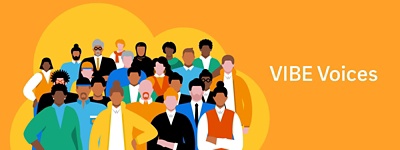Is This Hair Professional Enough?
At an event last fall, former first lady Michelle Obama said sheconsidered wearing her hair in braidsduring her White House tenure. Then as she considered the American people, she thought, “Nope, they’re not ready for it.” According to Washington Post reporter Jonathan Edwards: “Obama said her dilemma was an extreme example of the decisions Black women make daily to navigate the politics and sensibilities of their workplaces. They often find it easier, healthier, and safer to wear braids, dreadlocks, or Afros, but feel the pressure from white beauty standards and workplace norms to chemically straighten their hair for a more professional,‘clean-cut’ appearance.”
Our Black @ Workday EBC is convening a panel to explore the issue of women’s hair, hairstyles, and what’s considered professional in the workplace, says Tina Bartlett-Game, senior manager, functional consulting for Workday Success Plans and communications lead for the EMEA chapter of Black @ Workday. “There have been some articles about this topic recently about what’s considered professional. As we move from a work-at-home world and back to the workplace, maybe some people embraced their natural hair during remote work and want to maintain that in the office. We want to talk about what professionalism actually looks like and means, and who determines it.”
The panel will expand the conversation to encompass other hairstyles, some of which are by choice, and the ramifications. “[Our Women @ Workday lead] Esther is joining as well to talk about having different-colored hair. Why isn’t pink hair considered professional?”
Equity is the broader theme for this year’s event, and the panel will explore that through hair. Bartlett-Game hopes the event promotes encouragement and support for anyone who decides they want to go back to their natural hair, or a hair color that’s a little less common. “Workday allows us to be ourselves. If that means you have plaited hair or braided hair, then fantastic. If the next week you show up with curly hair, that’s OK, too. Your personality and who you are is what’s most important.”
When Women Are People . . . and Corporations Are Not
The progressive U.S. journalist, activist, thinker, and feminist Gloria Steinem says the fight for women’s equality is closely linked to the fight for many other causes and freedoms. She says that there are historical, political, and practical reasons social movements are linked, and why our success depends on understanding those shared origins and goals.
To celebrate International Women’s Day, the Bay Area Women @ Workday chapter will watch Steinem’s speech, called“When Women Are People . . . and Corporations Are Not,”focusing on false divisions, speaking up for yourself, and being an advocate. Then, Sherry Bourzac, manager of customer advocacy and Women @ Workday Bay Area co-lead, will help facilitate a discussion.
“Your job isn’t your family,” says Bourzac. “But it’s an important part of your life, as is building up your own skill set. We can help each other achieve our individual goals. We can help each other gain confidence, make others feel empowered, and understand that there’s a vast network of people rooting for you. Leverage that, ask for help, and tap into that brain trust. It’s OK to ask for what you want, shout about your accomplishments, and share what you’ve learned.”
“No one reaches a goal single-handedly. For example, with kids, it takes a village. Well, it’s the same with your career,” says Bourzac.
The goal in jointly listening to and discussing Steinem’s speech is to promote and spark great conversations. “I want people to come out motivated, making new connections, inspiring more open conversations, and carrying on these conversations and ideas. I want people to walk away feeling their cup is filled.”












